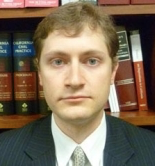Grinberg: About Those Grants for Further Study ...
Tuesday, August 8, 2023 | 0
I bring you tidings from the California Court of Appeal. Several parties have sought review of the WCAB’s practice of granting petitions for reconsideration for further review and study, and it appears the practice does not pass Court of Appeal muster.

Gregory Grinberg
For a long time, well before I was even a glimmer in his father’s eye, the Workers' Compensation Appeals Board would grant petitions for further study and then address the petitions on their merits down the line, sometimes more than a year later. The WCAB would engage in this practice to avoid the effect of Labor Code Section 5909, which would deem petitions for reconsideration denied if not acted upon within 60 days.
The Court of Appeal invalidated this practice. Instead, the court ruled in Earley v. WCAB (2003) that the WCAB cannot simply grant the petition for review and study, but must state its specific reasons for the grant. However, the WCAB is not required to make a final decision within those 60 days, but only to state its reasons.
The Court of Appeal had some relatively hard words in response to the WCAB’s reasoning for allowing the practice to continue. In response to the nature of the practice, the COA held that “a long-standing and incorrect procedure remains incorrect.” In response to the position of the WCAB as to its limited resources to state its reasons for each grant of reconsideration for further review and study, the COA responded that “a claim that compliance is impossible is in essence a plea for more funding. This claim is misdirected because the Court of Appeal is not the entity setting the board’s budget.”
So, what happens now? The petitions in this case revealed that, in response to a public records request, the WCAB disclosed that as of November 2021, there were 543 cases awaiting a final decision pending the WCAB’s grant-for-study orders. There are perhaps as many now pending almost two years later.
Are all of those petitions deemed denied under Labor Code Section 5909? Or are there now 60 days from the COA’s decision in Earley for the WCAB to render a final decision or a decision explaining its grant-for-study ruling? If they are deemed denied by operation of Section 5909, has the time to appeal the denial now run or can parties petition the Court of Appeal for review?
It’s not entirely clear what will happen, although I opine that due process and fair play would militate against such a harsh result, with the parties being cut off from any appeal rights after such a long wait. Likely, the prudent course of action would be to assume that the Earley decision effectively deems the appeals denied from the date of the Earley ruling, and the various parties can now file a petition for writ of review to the Court of Appeal on the assumption that Section 5909 has deemed their petitions for reconsideration denied.
In the meantime, I expect the WCAB will take on the herculean task of addressing all those pending petitions to state the reasons for the grant-for-study.
In a best-case scenario, the Court of Appeal will address all those appeals by ruling they are premature, allowing the WCAB 60 days from the Earley ruling to state reasons for each grant-for-study decision. In a worst-case scenario, the Court of Appeal will rule that the 60 days ran from the filing of the petitions and that all those pending should have appealed to the COA long ago.
Gregory Grinberg is managing partner of the Tobin Lucks office in Burlingame and a certified specialist in workers’ compensation law. This post is reprinted with permission from Grinberg’s WCDefenseCA blog.



Comments